Damon Runyon Cancer Research Foundation Grants Prestigious Fellowship, Breakthrough Scientist Awards to 24 Top Young Scientists
Grants totaling over $4.7M give early career investigators independence to pursue cutting-edge cancer research
The Damon Runyon Cancer Research Foundation, a non-profit organization focused on supporting innovative, early career researchers, named 18 new Damon Runyon Fellows at its fall Fellowship Award Committee review. The recipients of this prestigious, four-year award are outstanding postdoctoral scientists conducting basic and translational cancer research in the laboratories of leading senior investigators across the country. The Fellowship encourages the nation's most promising young scientists to pursue careers in cancer research by providing them with independent funding ($231,000 total) to work on innovative projects.
The Committee also named six new recipients of the Damon Runyon-Dale F. Frey Award for Breakthrough Scientists. This award provides additional funding to scientists completing a Damon Runyon Fellowship Award who have greatly exceeded Damon Runyon’s highest expectations and are most likely to make paradigm-shifting breakthroughs that transform the way we prevent, diagnose and treat cancer. Each awardee will receive $100,000 to be used toward their research.
2019 Recipients of the Damon Runyon-Dale F. Frey Award for Breakthrough Scientists:
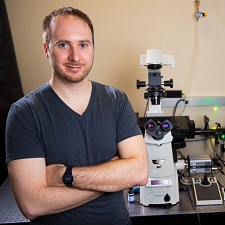 Brian J. Beliveau, PhD (Damon Runyon HHMI Fellow ’16-’18), University of Washington
Brian J. Beliveau, PhD (Damon Runyon HHMI Fellow ’16-’18), University of Washington
Dr. Beliveau has developed transformative single-cell imaging technologies to analyze how chromosomes inside the nucleus are organized. He will use these tools to investigate the causes and consequences of genome organization in health and disease. This technology may provide a clearer picture of the difference between the structure of genes that are turned “on” for protein production and genes that are “off.” As many cancers are driven by the abnormal expression of genes such as oncogenes and tumor suppressors, information about how DNA structure can control gene expression and protein production may aid in the development of novel cancer therapies.
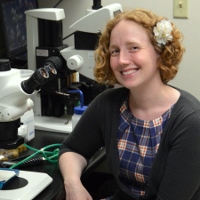 Tera C. Levin, PhD (Damon Runyon HHMI Fellow ’15-’18), Fred Hutchinson Cancer Research Center
Tera C. Levin, PhD (Damon Runyon HHMI Fellow ’15-’18), Fred Hutchinson Cancer Research Center
Dr. Levin is studying the interaction of host cells with the pathogens that infect them. These interactions cause repeated cycles of evolution, leaving “signatures” in both host and pathogen genomes specifically at molecular interfaces of host-pathogen binding. Evolutionary signatures can be used to pinpoint genes critical to disease progression. She is specifically examining the interactions between the pathogenic bacteria Legionella pneumophila and its and amoeba hosts. Her research will inform ongoing efforts to control this pathogen and reduce outbreaks. In addition, her studies have the potential to help cancer patients, who are immunocompromised after undergoing chemotherapy; they are susceptible to Legionella pneumophila infections that can result in a life-threatening, pneumonia-like disease associated with significant morbidity and mortality.
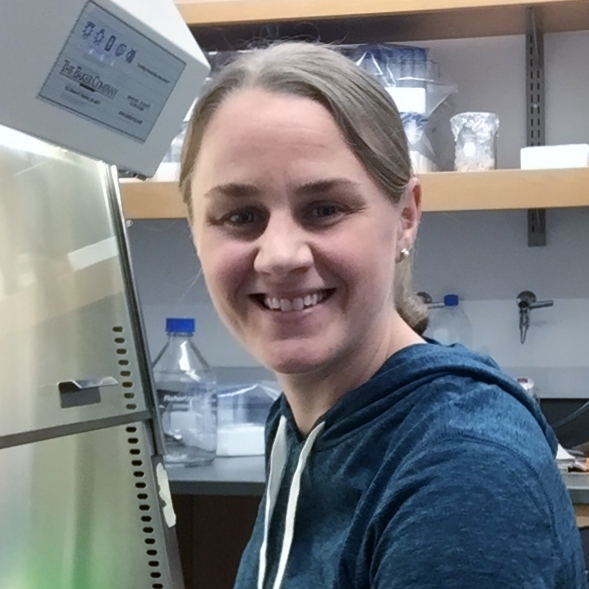 Sigrid Nachtergaele, PhD (Damon Runyon HHMI Fellow ’15-’19), University of Chicago
Sigrid Nachtergaele, PhD (Damon Runyon HHMI Fellow ’15-’19), University of Chicago
Dr. Nachtergaele is investigating the roles of RNA methylation, a process that chemically tags mRNA to alter gene expression and protein production. She has discovered a novel enzyme (m1A) that modifies RNA in this way and aims to uncover how malfunctions in this process can lead to cancer. Her investigations will expand the understanding of how mRNA modifications are regulated and result in altered cell signaling and growth in normal and cancer cells. Building on this knowledge, her goal is to identify novel therapeutic targets for cancer.
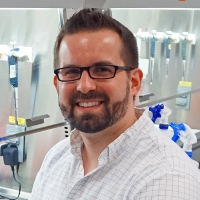 Thomas M. Norman, PhD (Damon Runyon Fellow ’15-’18), University of California, San Francisco
Thomas M. Norman, PhD (Damon Runyon Fellow ’15-’18), University of California, San Francisco
Dr. Norman aims to build a computational model of cancer genetics and understand the roles played by the complex interaction of genes. Though some cancers are characterized by very specific mutations, other cancers display a host of relatively common mutations, along with a string of infrequent mutations. He has developed technology to collect and integrate large data sets of experimental results with patient data to create a predictive model. This can be used to understand how a patient’s unique spectrum of mutations combine to give rise to cancer. In addition, his work may help to prioritize therapies in precision oncology and uncover hidden gene targets leading to new therapies.
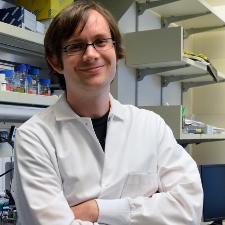 Alistair B. Russell, PhD (Damon Runyon-Merck Fellow ’15-‘19), Fred Hutchinson Cancer Research Center
Alistair B. Russell, PhD (Damon Runyon-Merck Fellow ’15-‘19), Fred Hutchinson Cancer Research Center
Dr. Russell is investigating the mechanisms by which immune cells recognize influenza infection. Yearly influenza epidemics threaten immunocompromised individuals, including cancer patients, who are at an increased risk of complications following infection. His research combines virology, single-cell transcriptomic approaches, and computational biology to study innate immunity to viruses. Specifically, he aims to address the question of why immune responses to different influenza pandemics have differed so much—exploring why some strains are more or less immunogenic. He will expand his work by suggesting viral variants to create more effective vaccines that can bolster the immune response and better protect patients. These findings might suggest other therapeutic avenues, including the possibility of using such viruses in oncolytic anti-cancer therapy.
Justin L. Sparks, PhD (Damon Runyon Fellow ’15-’19), Harvard Medical School
Dr. Sparks is investigating the cellular machinery that carries out DNA replication and how this process can go awry in cancer cells. Specifically, he is focusing on the eukaryotic replisome, which is a complex of enzymes that helps cellular DNA replicate during cell division. He has found that the replisome can overcome bulky obstacles on a DNA strand, such as DNA-protein cross-links (DPCs), during replication to maintain genome integrity. DPCs, generated from cellular metabolites and environmental mutagens, are likely important for cancer etiology. Faulty DNA replication and repair are hallmarks of all cancers. Thus, his research has the potential to uncover new drug targets that can prevent genome instability and the evolution of cancers leading to therapeutic resistance.
November 2018 Damon Runyon Fellows:
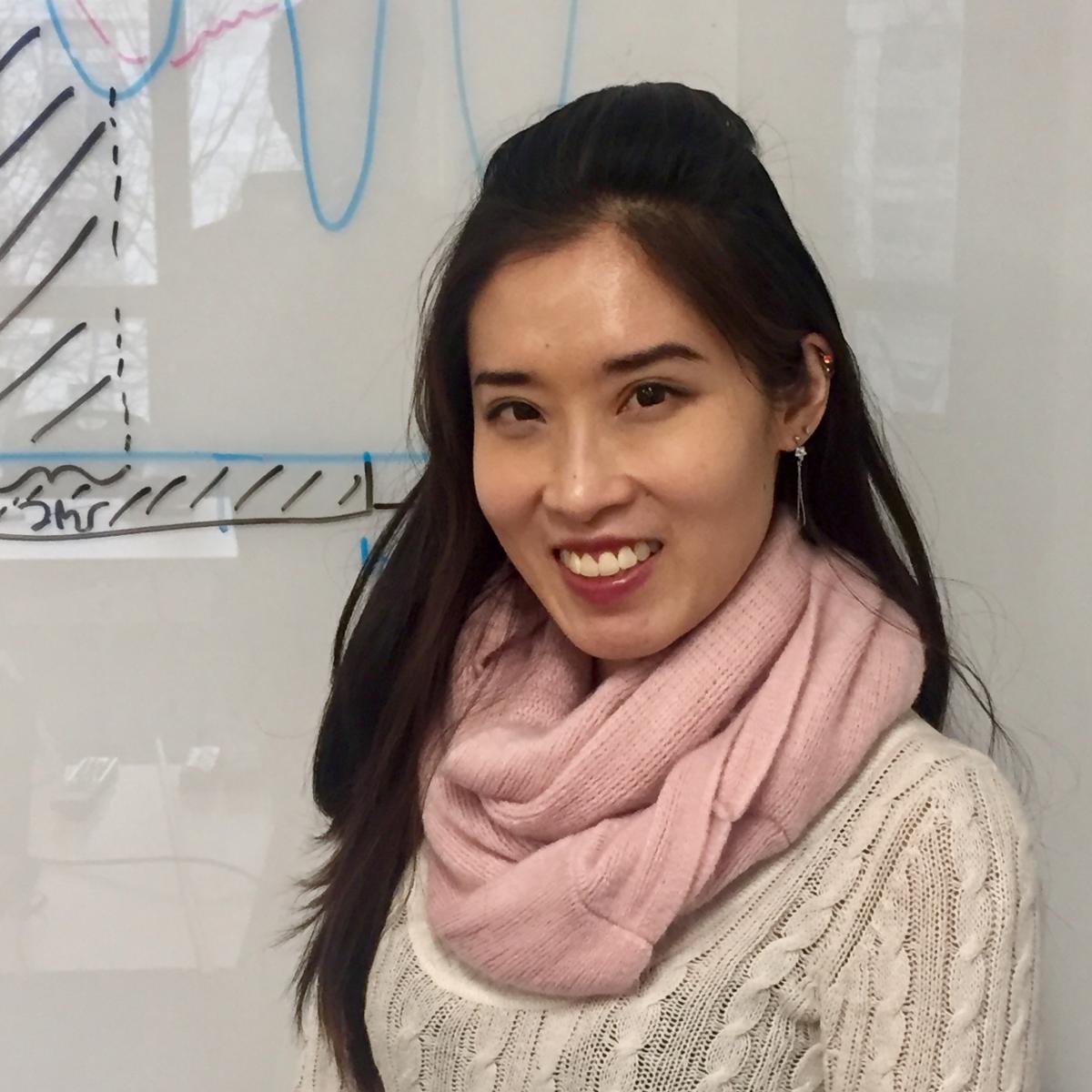 Amelia N. Chang, PhD, with her sponsor Michael E. Greenberg, PhD, at Harvard Medical School, Cambridge, is investigating the role of activity-regulated gene expression in human brain evolution. Activity-regulated pathways control critical brain functions and modulate tumor growth in multiple cancers. These pathways are broadly conserved across all mammals, but newer studies have identified features that are unique to primates and may influence important aspects of brain function and tumor progression. Dr. Chang will study the function, regulation, and evolution of primate-specific genes. Through these experiments, she aims to uncover molecular insight into what makes humans susceptible to cancer.
Amelia N. Chang, PhD, with her sponsor Michael E. Greenberg, PhD, at Harvard Medical School, Cambridge, is investigating the role of activity-regulated gene expression in human brain evolution. Activity-regulated pathways control critical brain functions and modulate tumor growth in multiple cancers. These pathways are broadly conserved across all mammals, but newer studies have identified features that are unique to primates and may influence important aspects of brain function and tumor progression. Dr. Chang will study the function, regulation, and evolution of primate-specific genes. Through these experiments, she aims to uncover molecular insight into what makes humans susceptible to cancer.
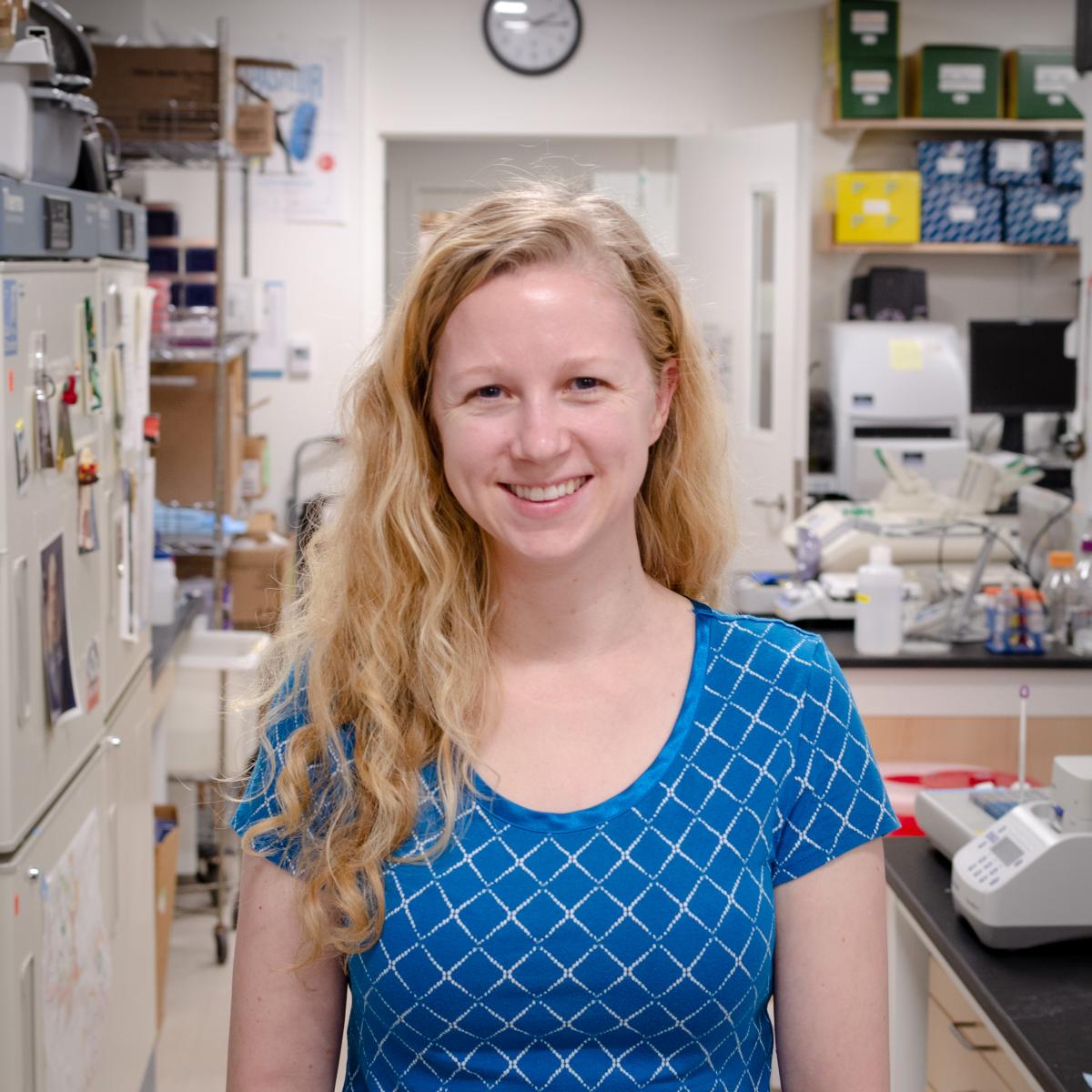 Elizabeth Costa, PhD [Robert Black Fellow] with her sponsor Sebastian Lourido, PhD, at the Whitehead Institute, Cambridge, is studying how cells interact with one another through cell-surface adhesion molecules. During cancer progression, cancer cells can change expression of some of these molecules to metastasize and evade the immune system. Dr. Costa is using the parasite Toxoplasma gondii, which can recognize and invade nearly all mammalian cells, to uncover novel proteins involved in this recognition. By characterizing the specificity of these interactions for different host cells, she hopes to expand the ability to recognize and mark specific cells, which could be harnessed for cancer diagnostics and therapeutic intervention.
Elizabeth Costa, PhD [Robert Black Fellow] with her sponsor Sebastian Lourido, PhD, at the Whitehead Institute, Cambridge, is studying how cells interact with one another through cell-surface adhesion molecules. During cancer progression, cancer cells can change expression of some of these molecules to metastasize and evade the immune system. Dr. Costa is using the parasite Toxoplasma gondii, which can recognize and invade nearly all mammalian cells, to uncover novel proteins involved in this recognition. By characterizing the specificity of these interactions for different host cells, she hopes to expand the ability to recognize and mark specific cells, which could be harnessed for cancer diagnostics and therapeutic intervention.
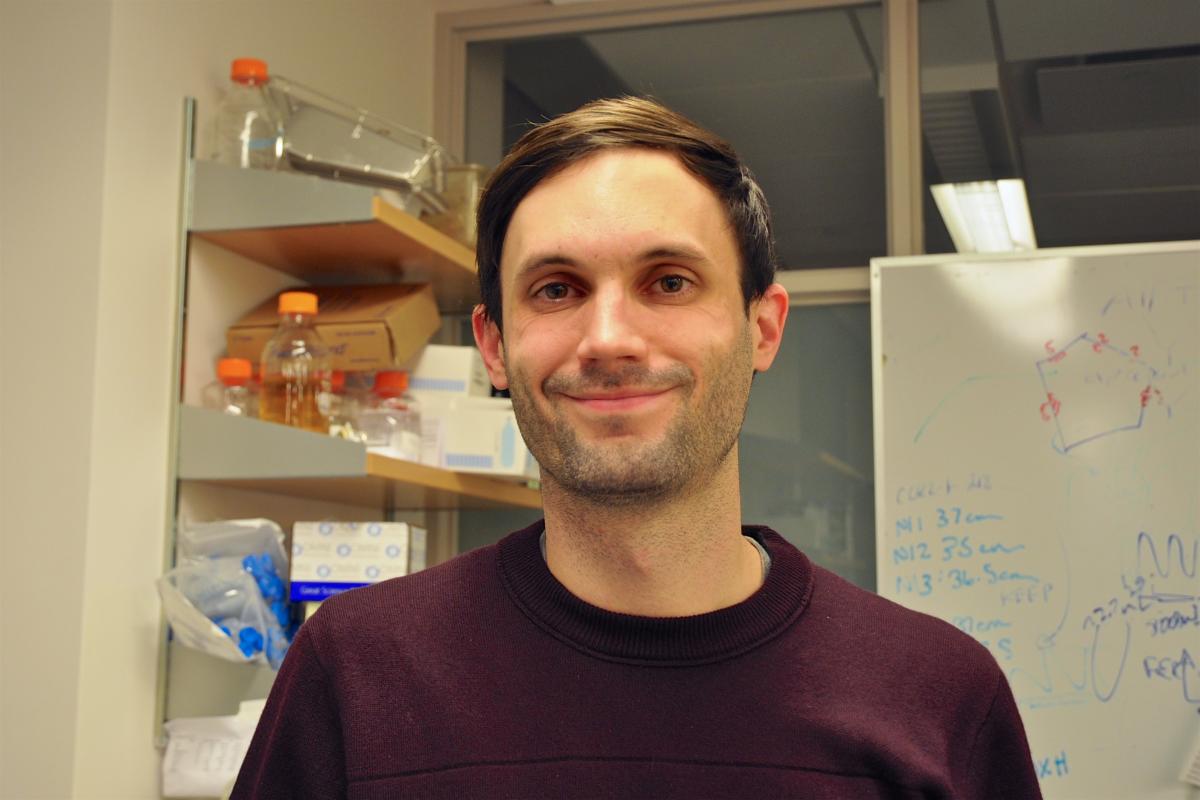 Gregory P. Donaldson, PhD [Robert Black Fellow] with his sponsor Daniel Mucida, PhD, at The Rockefeller University, New York, is investigating the difference between a healthy mucosal surface and a tumor-promoting surface in the gut. Bacteria in the gut associate intimately with the surface of the intestine, where they exert a constant influence on the immune system throughout an organism’s life. Studies indicate that certain gut bacteria in cancer patients reside in the mucus of the intestinal surface and may promote (or potentially inhibit) the growth of tumors, perhaps through effects on the immune system. Uncovering specific “molecular conversations” that maintain a healthy community of mucosal bacteria may lead to novel therapies to prevent the origin of colorectal cancers in addition to treating existing tumors.
Gregory P. Donaldson, PhD [Robert Black Fellow] with his sponsor Daniel Mucida, PhD, at The Rockefeller University, New York, is investigating the difference between a healthy mucosal surface and a tumor-promoting surface in the gut. Bacteria in the gut associate intimately with the surface of the intestine, where they exert a constant influence on the immune system throughout an organism’s life. Studies indicate that certain gut bacteria in cancer patients reside in the mucus of the intestinal surface and may promote (or potentially inhibit) the growth of tumors, perhaps through effects on the immune system. Uncovering specific “molecular conversations” that maintain a healthy community of mucosal bacteria may lead to novel therapies to prevent the origin of colorectal cancers in addition to treating existing tumors.
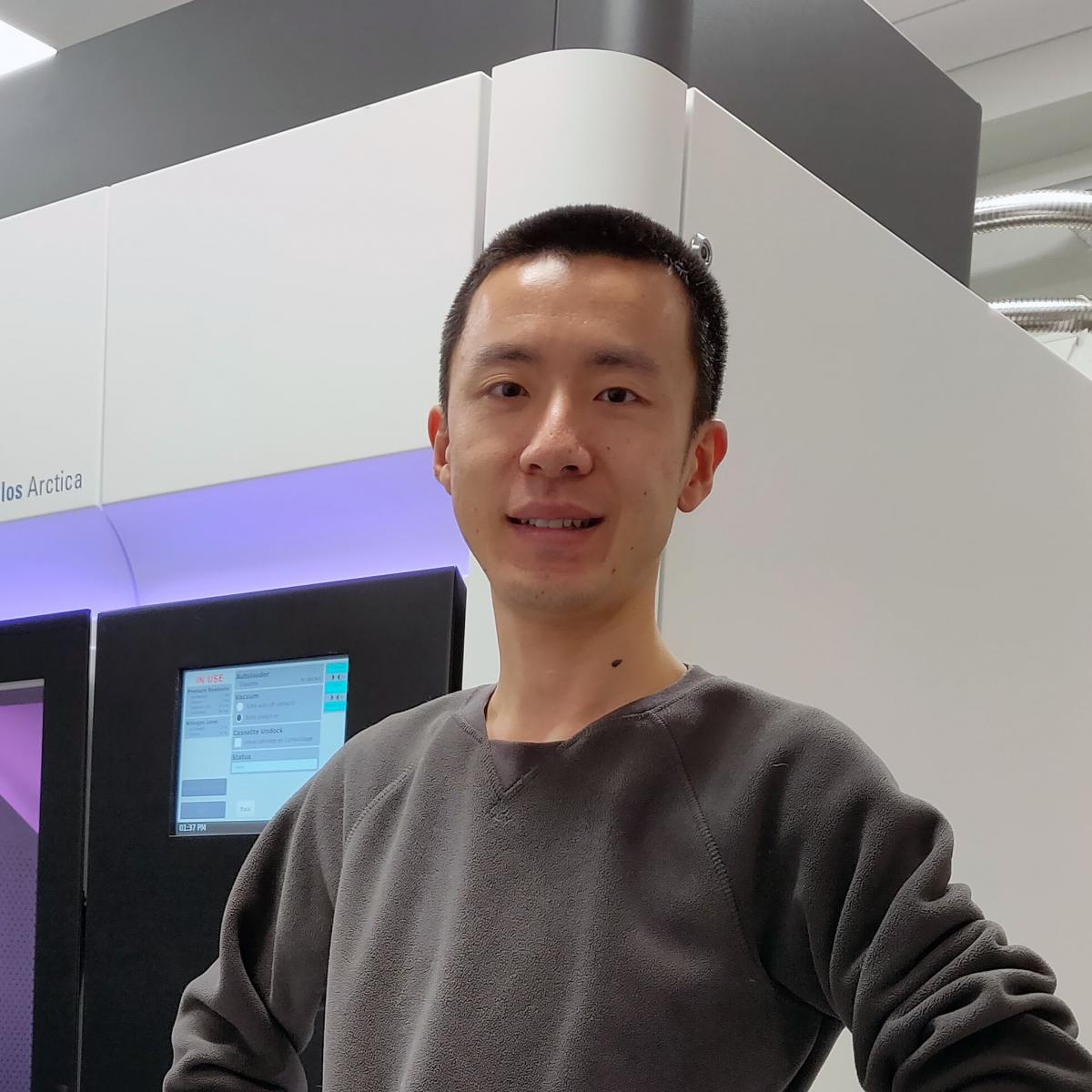 Yuan Gao, PhD [HHMI Fellow] with his sponsor Tom A. Rapoport, PhD, at Harvard Medical School, Cambridge, aims to understand the mechanism that proteins inside the cell use to enter peroxisomes. Peroxisomes are organelles that play important roles in fatty acid degradation, ether-phospholipid biosynthesis, and breakdown of hydrogen peroxide. Mutations in genes that cause faulty peroxisome function, particularly those that affect matrix protein import, result in a variety of severe inherited human diseases referred to as peroxisome biogenesis disorders (PBD). Cancer cell lines also strongly depend on peroxisomes for survival, which suggests that pharmacologic targeting of peroxisomes could be a novel cancer therapy. Dr. Gao is using a combination of biochemical and biophysical approaches to investigate the peroxisomal import machinery with the goal of deciphering its mechanism and developing better cancer therapies.
Yuan Gao, PhD [HHMI Fellow] with his sponsor Tom A. Rapoport, PhD, at Harvard Medical School, Cambridge, aims to understand the mechanism that proteins inside the cell use to enter peroxisomes. Peroxisomes are organelles that play important roles in fatty acid degradation, ether-phospholipid biosynthesis, and breakdown of hydrogen peroxide. Mutations in genes that cause faulty peroxisome function, particularly those that affect matrix protein import, result in a variety of severe inherited human diseases referred to as peroxisome biogenesis disorders (PBD). Cancer cell lines also strongly depend on peroxisomes for survival, which suggests that pharmacologic targeting of peroxisomes could be a novel cancer therapy. Dr. Gao is using a combination of biochemical and biophysical approaches to investigate the peroxisomal import machinery with the goal of deciphering its mechanism and developing better cancer therapies.
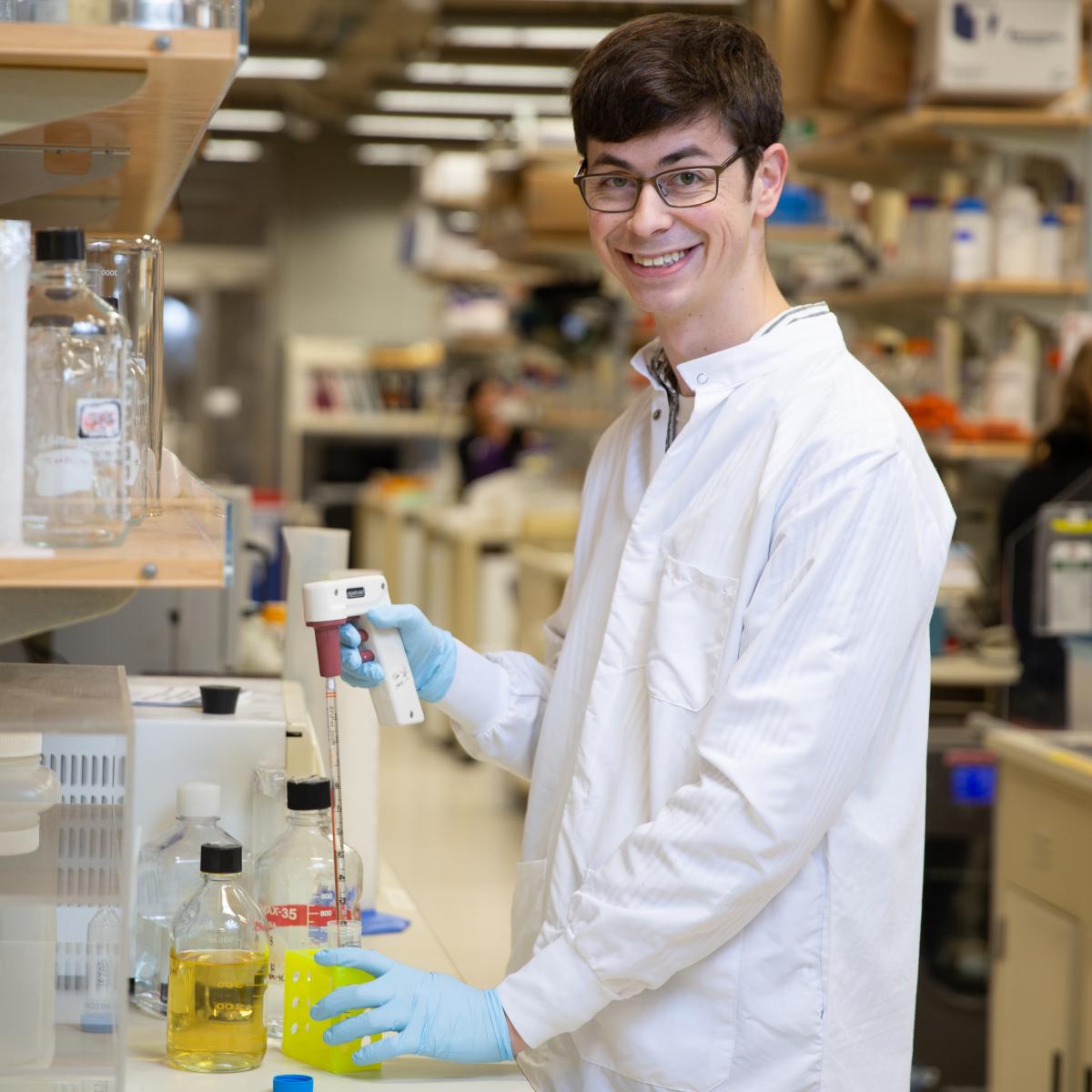 Thomas H. Mann, PhD, with his sponsor Susan M. Kaech, PhD, at the Salk Institute, La Jolla, is investigating why the “killer” T cells of our immune system gradually lose the ability to recognize and kill cancer cells. Immunotherapy aims to revitalize these dysfunctional “exhausted” T cells, but a better understanding of how T cells recognize markers on cancer cells called antigens is needed. Dr. Mann is testing the response of engineered T cells to antigen stimulation at different durations, frequencies, and intensities. These studies will focus on understanding the role of calcium signaling in the failure of T cell response. Unraveling the molecular mechanism of T cell exhaustion may help in the design of therapies to prevent or alter its progression, potentially leading to improved immunotherapies.
Thomas H. Mann, PhD, with his sponsor Susan M. Kaech, PhD, at the Salk Institute, La Jolla, is investigating why the “killer” T cells of our immune system gradually lose the ability to recognize and kill cancer cells. Immunotherapy aims to revitalize these dysfunctional “exhausted” T cells, but a better understanding of how T cells recognize markers on cancer cells called antigens is needed. Dr. Mann is testing the response of engineered T cells to antigen stimulation at different durations, frequencies, and intensities. These studies will focus on understanding the role of calcium signaling in the failure of T cell response. Unraveling the molecular mechanism of T cell exhaustion may help in the design of therapies to prevent or alter its progression, potentially leading to improved immunotherapies.
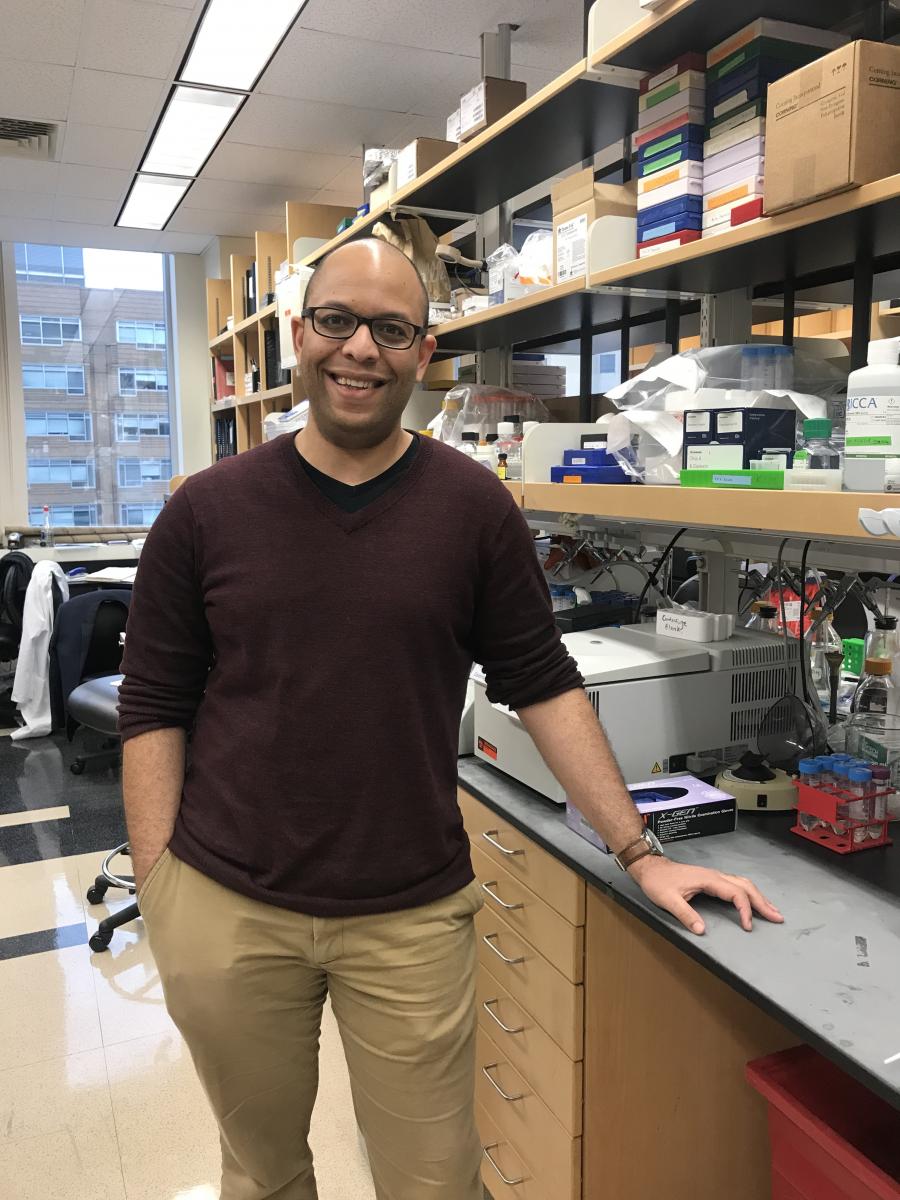 Aaron Moye, PhD, with his sponsor Carla Kim, PhD, at Boston Children’s Hospital, Boston, is studying early-stage lung cancer. Specifically, he is investigating the cell-to-cell cross talk between lung cancer cells and their surrounding microenvironment and how this cellular communication promotes early-stage lung cancer initiation and progression. Dr. Moye aims to discover secreted factors that can be used in diagnosis and to identify new targets for drug development that interfere with the lung cancer microenvironment.
Aaron Moye, PhD, with his sponsor Carla Kim, PhD, at Boston Children’s Hospital, Boston, is studying early-stage lung cancer. Specifically, he is investigating the cell-to-cell cross talk between lung cancer cells and their surrounding microenvironment and how this cellular communication promotes early-stage lung cancer initiation and progression. Dr. Moye aims to discover secreted factors that can be used in diagnosis and to identify new targets for drug development that interfere with the lung cancer microenvironment.
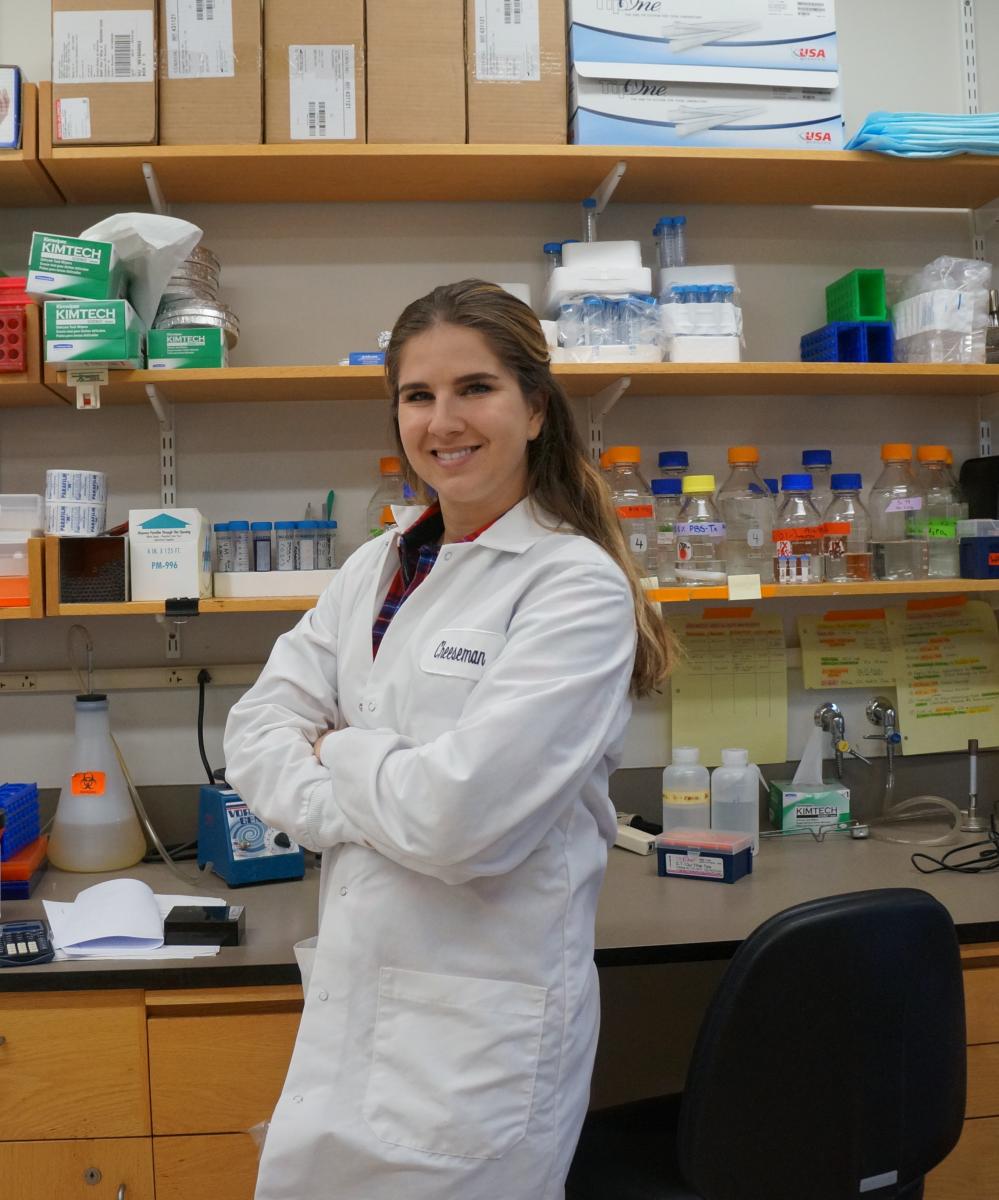 Alexandra Nguyen, PhD, with her sponsor Iain M. Cheeseman, PhD, at the Whitehead Institute, Cambridge, aims to identify the molecular differences between cancer cells and healthy cells, using large-scale genetic approaches in acute myeloid leukemias. Cancer cells exhibit a high degree of diversity in the cellular pathways utilized for survival. Identifying these cellular differences could provide a method to strategically target and kill cancerous cells while minimizing the off-target effects to healthy cells.
Alexandra Nguyen, PhD, with her sponsor Iain M. Cheeseman, PhD, at the Whitehead Institute, Cambridge, aims to identify the molecular differences between cancer cells and healthy cells, using large-scale genetic approaches in acute myeloid leukemias. Cancer cells exhibit a high degree of diversity in the cellular pathways utilized for survival. Identifying these cellular differences could provide a method to strategically target and kill cancerous cells while minimizing the off-target effects to healthy cells.
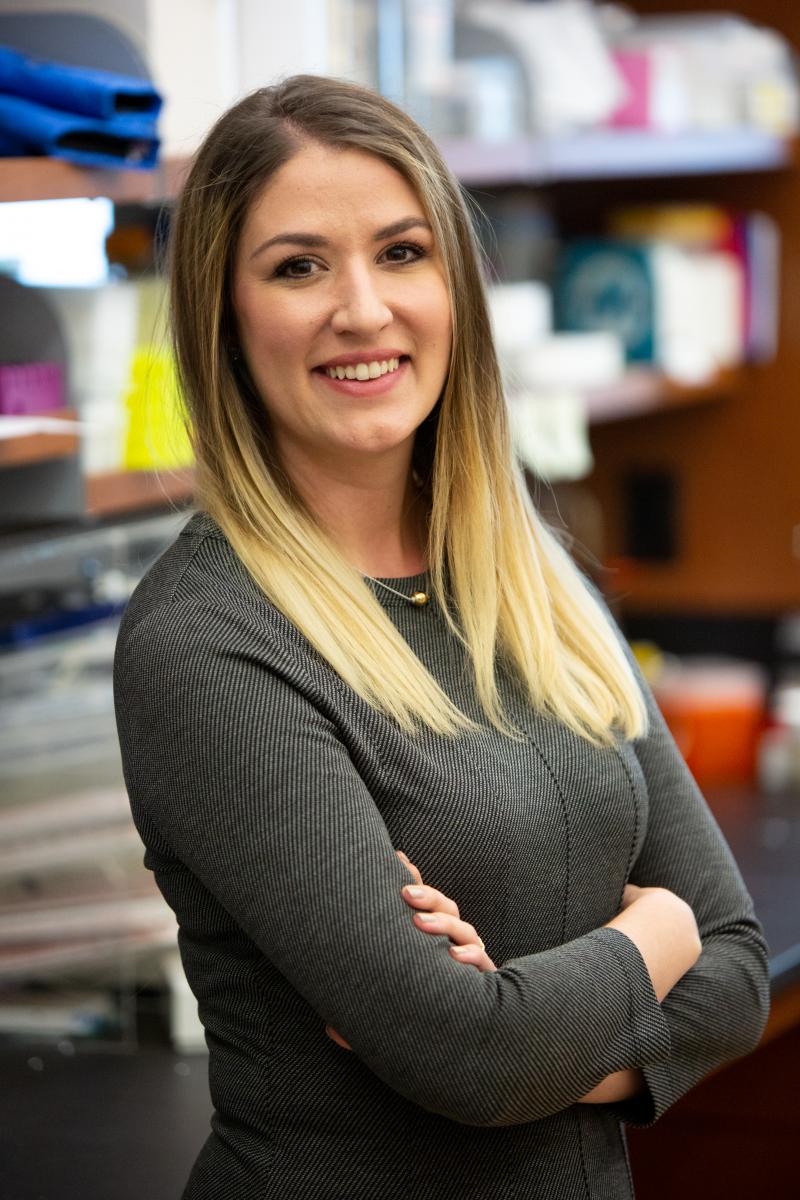 Abigail Overacre-Delgoffe, PhD, with her sponsors Timothy W. Hand, PhD, and Olivera Finn, PhD, at the University of Pittsburgh, Pittsburgh, is utilizing unique tools to address how the interaction between the host’s immune system and gut microbes affects colon tumor progression and patient responsiveness to current immunotherapies. Currently, colon cancer patients show an extremely limited response to immune-based therapies and have very poor survival rates. The colon is a unique environment that is composed of host cells and numerous bacteria and microbes that have evolved with the host. Dr. Overacre-Delgoffe aims to understand the basic mechanisms of immunotherapy resistance due to microbiome-immune system interactions, which may aid in developing more effective therapeutics for colon cancer.
Abigail Overacre-Delgoffe, PhD, with her sponsors Timothy W. Hand, PhD, and Olivera Finn, PhD, at the University of Pittsburgh, Pittsburgh, is utilizing unique tools to address how the interaction between the host’s immune system and gut microbes affects colon tumor progression and patient responsiveness to current immunotherapies. Currently, colon cancer patients show an extremely limited response to immune-based therapies and have very poor survival rates. The colon is a unique environment that is composed of host cells and numerous bacteria and microbes that have evolved with the host. Dr. Overacre-Delgoffe aims to understand the basic mechanisms of immunotherapy resistance due to microbiome-immune system interactions, which may aid in developing more effective therapeutics for colon cancer.
Juhee Pae, PhD, with her sponsor Gabriel Victora, PhD, at The Rockefeller University, New York, is investigating the regulation of immune B cell proliferation in Germinal Centers (GCs). While this process is critical for bodies to resist infection, it must be carefully regulated. On one hand, not having enough B cells can lead to immunodeficiency and susceptibility to infections. Conversely, inappropriate activation is a major driver of malignant transformation and cancers such as B cell lymphomas. Dr. Pae’s research has the potential to shed light on how lymphomas form and to aid in the rational design of cancer therapeutics.
 Ariana Peck, PhD [The Mark Foundation for Cancer Research Fellow] with her sponsor Grant Jensen, PhD, at California Institute of Technology, Pasadena, is developing a new method to determine the three-dimensional structures of proteins. Though X-ray crystallography has determined protein structure for decades, many proteins involved in cancer form crystals that are a million-fold too small to be studied by this method. Applying the microscopy technique of electron cryotomography to these nanocrystals holds the potential to overcome this limitation and resolve the atomic architectures of these difficult-to-characterize proteins. Such detailed structural information is critical for understanding the molecular basis of cancer and accelerating drug discovery.
Ariana Peck, PhD [The Mark Foundation for Cancer Research Fellow] with her sponsor Grant Jensen, PhD, at California Institute of Technology, Pasadena, is developing a new method to determine the three-dimensional structures of proteins. Though X-ray crystallography has determined protein structure for decades, many proteins involved in cancer form crystals that are a million-fold too small to be studied by this method. Applying the microscopy technique of electron cryotomography to these nanocrystals holds the potential to overcome this limitation and resolve the atomic architectures of these difficult-to-characterize proteins. Such detailed structural information is critical for understanding the molecular basis of cancer and accelerating drug discovery.
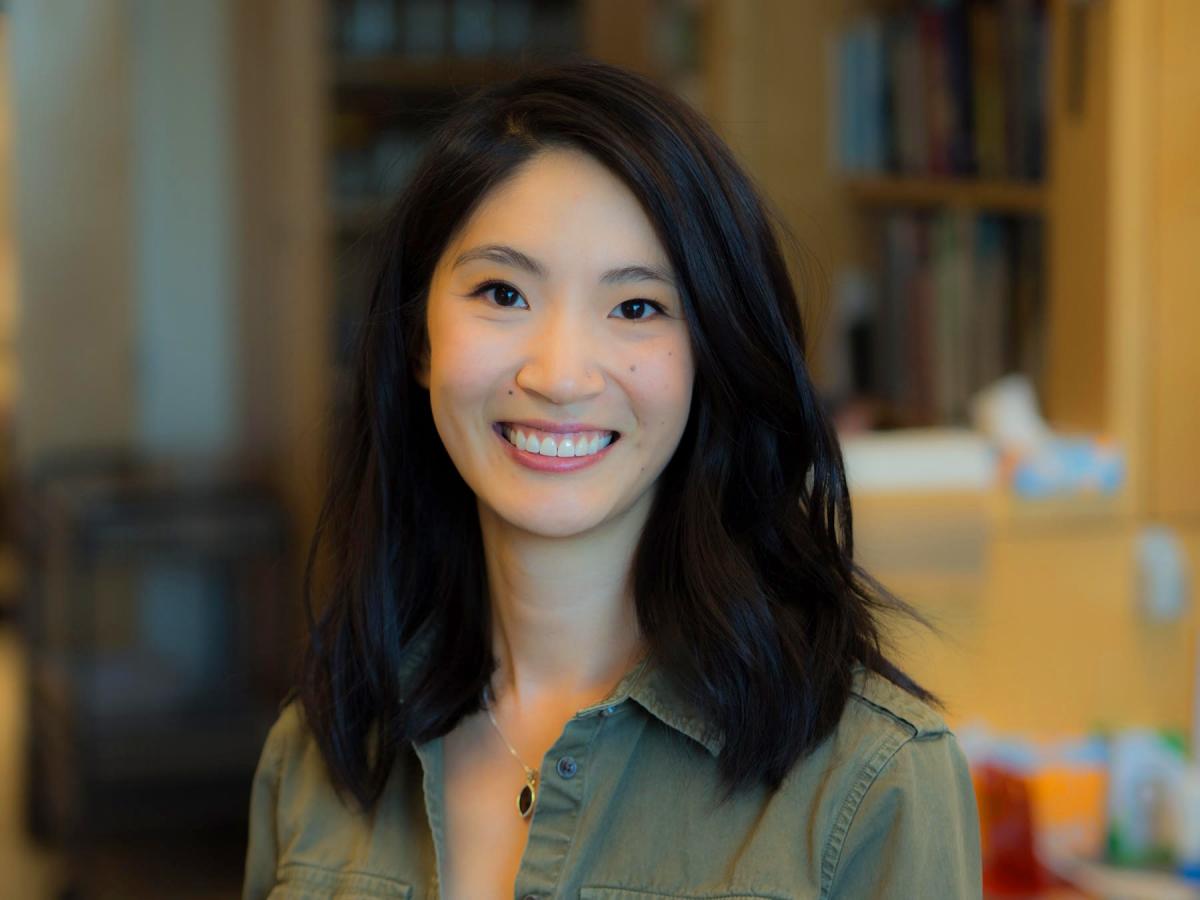 Jessica Sheu-Gruttadauria, PhD, with her sponsor Ronald D. Vale, PhD, at the University of California, San Francisco, is investigating the assembly and function of an important but poorly understood class of cellular compartments called membrane-less organelles. Classically, cellular activities are efficiently organized in membrane-bound compartments. Membrane-less organelles utilize newly discovered mechanisms for molecular organization that allow them to function in the absence of a membrane. Disruption of membrane-less organelles is a hallmark of many cancers, but how they are structured and regulated is a mystery. Dr. Sheu-Gruttadauria aims to determine how the unique assembly features of these important cellular structures contribute to biological function and how they may be co-opted to drive cancer growth.
Jessica Sheu-Gruttadauria, PhD, with her sponsor Ronald D. Vale, PhD, at the University of California, San Francisco, is investigating the assembly and function of an important but poorly understood class of cellular compartments called membrane-less organelles. Classically, cellular activities are efficiently organized in membrane-bound compartments. Membrane-less organelles utilize newly discovered mechanisms for molecular organization that allow them to function in the absence of a membrane. Disruption of membrane-less organelles is a hallmark of many cancers, but how they are structured and regulated is a mystery. Dr. Sheu-Gruttadauria aims to determine how the unique assembly features of these important cellular structures contribute to biological function and how they may be co-opted to drive cancer growth.
Sukrit Silas, PhD, with his sponsors Jonathan S. Weissman, PhD, and Carol Gross, PhD, at the University of California, San Francisco, is investigating how naturally occurring microbial and viral proteins might be utilized in the fight against cancer. Complex interactions in bacterial communities (such as the gut microbiome) can often lead to genetic information being exchanged, modified, and reused by competing species. Dr. Silas will develop strategies to control the composition and behavior of these communities, potentially helping to mitigate the threat from antibiotic resistance and infectious disease, which can result in serious clinical complications in patients.
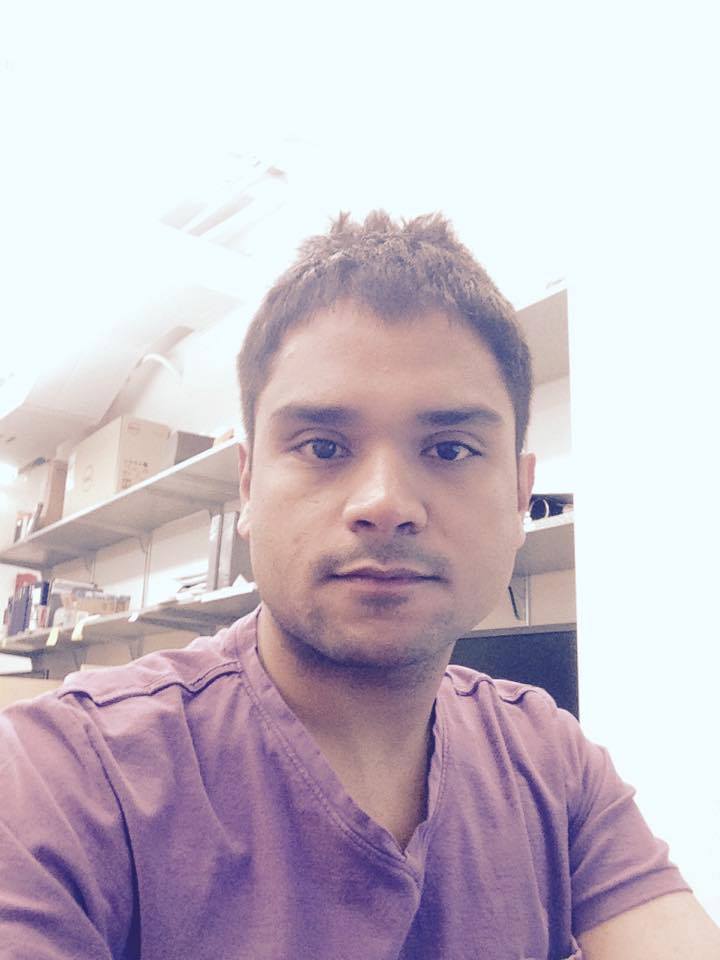 Digvijay Singh, PhD, with his sponsor Elizabeth Villa, PhD, at the University of California, San Diego, is using cryo-electron tomography for structural investigations of the phase-separated transcriptional sites inside the cells. Faulty regulation of transcription from DNA to RNA is one of the major hallmarks of cancer. Dr. Singh aims to gain knowledge about the transcriptional sites to explain how different components come together to carry out transcription, their relationships with the rest of the cell, and what can go wrong in the process to cause disease.
Digvijay Singh, PhD, with his sponsor Elizabeth Villa, PhD, at the University of California, San Diego, is using cryo-electron tomography for structural investigations of the phase-separated transcriptional sites inside the cells. Faulty regulation of transcription from DNA to RNA is one of the major hallmarks of cancer. Dr. Singh aims to gain knowledge about the transcriptional sites to explain how different components come together to carry out transcription, their relationships with the rest of the cell, and what can go wrong in the process to cause disease.
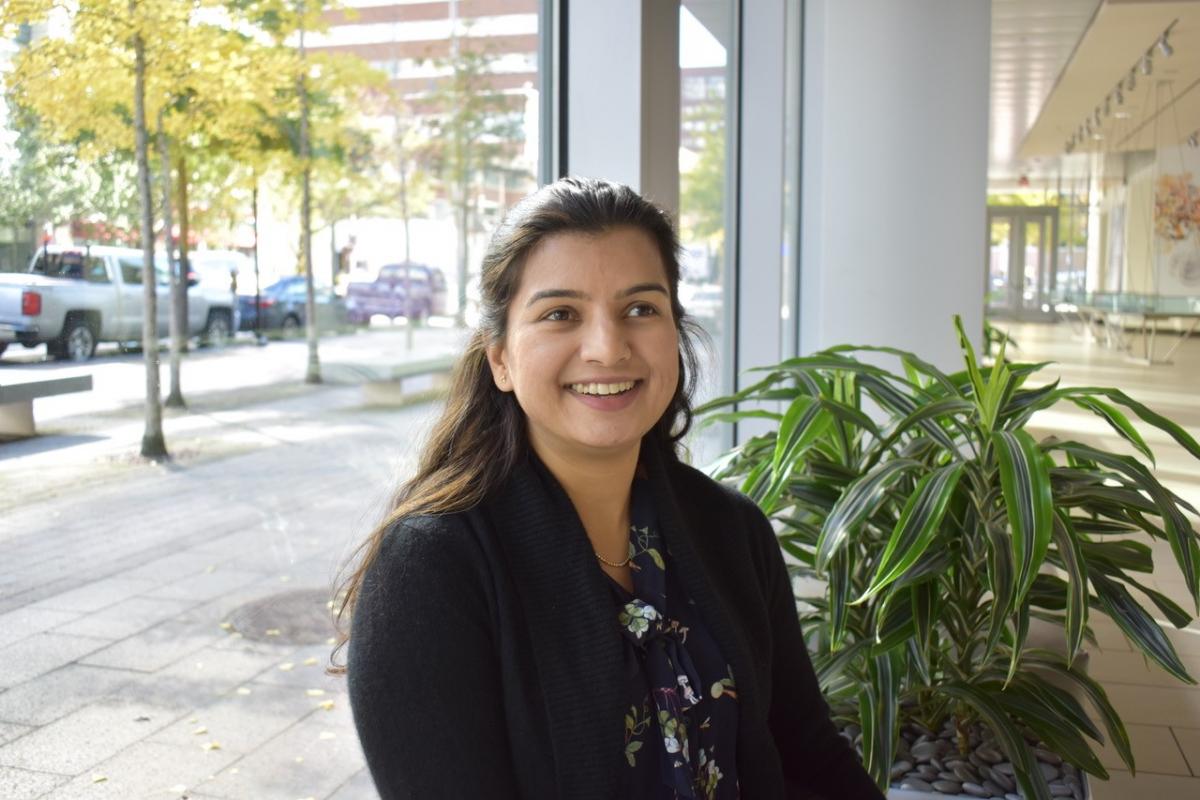 Sharanya Sivanand, PhD, with her sponsor Matthew G. Vander Heiden, MD, PhD, at Massachusetts Institute of Technology, Cambridge, aims to study how metabolic alterations impact pancreatic ductal adenocarcinoma metastases. Pancreatic tumors primarily metastasize to the liver and the lung. It is known that genetics, tissue of origin, and tumor microenvironments can impose metabolic demands on cancer cells. However, it is unclear whether primary tumors and associated metastases during disease progression are metabolically different. Her research will provide insight into metabolic demands of tumors originating in the pancreas and identify metabolic liabilities that may restrict metastatic growth to certain tissue types.
Sharanya Sivanand, PhD, with her sponsor Matthew G. Vander Heiden, MD, PhD, at Massachusetts Institute of Technology, Cambridge, aims to study how metabolic alterations impact pancreatic ductal adenocarcinoma metastases. Pancreatic tumors primarily metastasize to the liver and the lung. It is known that genetics, tissue of origin, and tumor microenvironments can impose metabolic demands on cancer cells. However, it is unclear whether primary tumors and associated metastases during disease progression are metabolically different. Her research will provide insight into metabolic demands of tumors originating in the pancreas and identify metabolic liabilities that may restrict metastatic growth to certain tissue types.
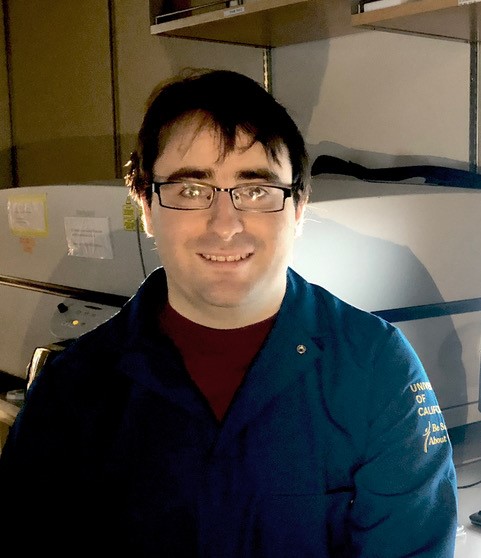 Adam J. Stevens, PhD [HHMI Fellow] with his sponsor Wendell A. Lim, PhD, at the University of California, San Francisco, aims to discover how engineered immune cells may be applied to the treatment of solid tumors that limit the infiltration of endogenous T cells. Dr. Stevens is using protein engineering to design synthetic receptors that direct T cells to tumor-associated antigens and facilitate penetration into the tumor. Once inside the tumor, the engineered cells should serve as signaling hubs to recruit additional immune cells and kill the cancer cells.
Adam J. Stevens, PhD [HHMI Fellow] with his sponsor Wendell A. Lim, PhD, at the University of California, San Francisco, aims to discover how engineered immune cells may be applied to the treatment of solid tumors that limit the infiltration of endogenous T cells. Dr. Stevens is using protein engineering to design synthetic receptors that direct T cells to tumor-associated antigens and facilitate penetration into the tumor. Once inside the tumor, the engineered cells should serve as signaling hubs to recruit additional immune cells and kill the cancer cells.
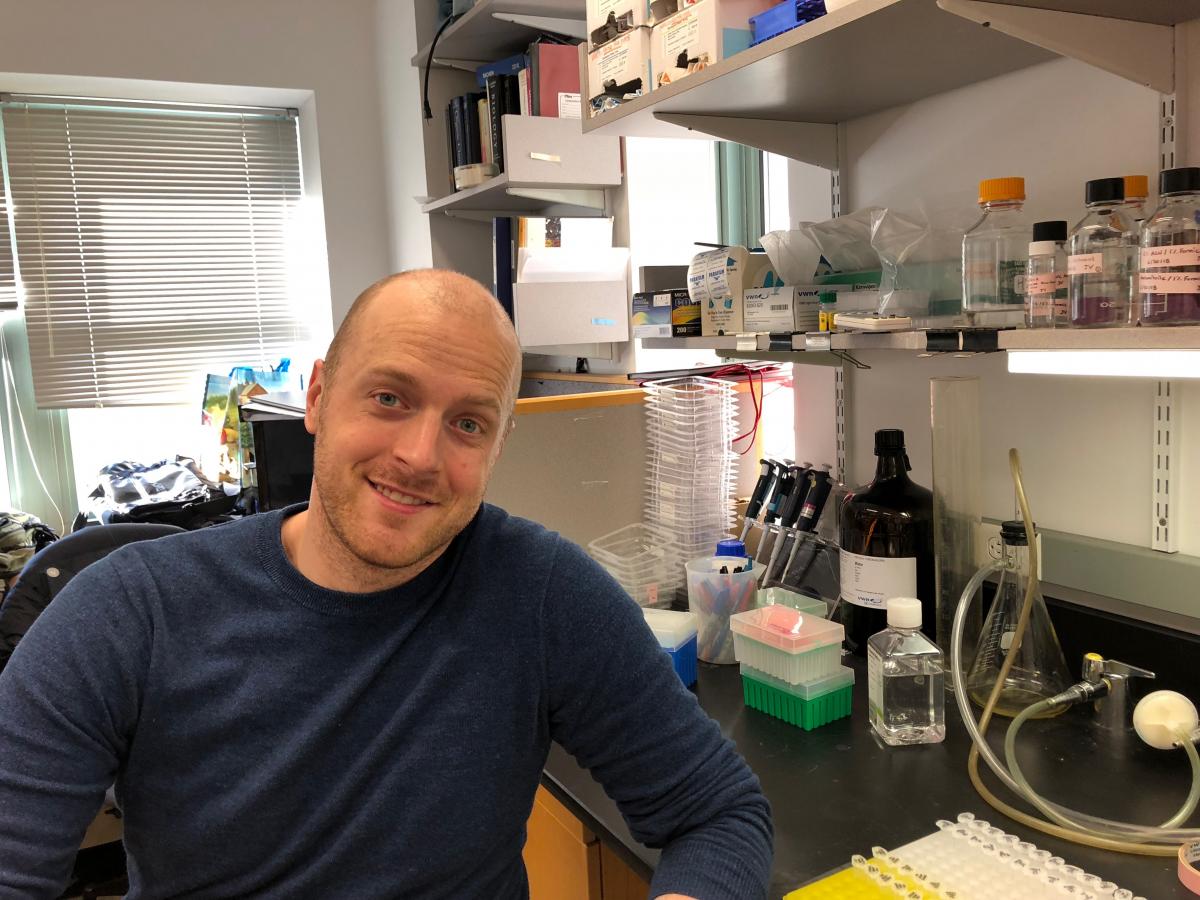 Jonathan G. Van Vranken, PhD [The Mark Foundation for Cancer Research Fellow] with his sponsor Steven Gygi, PhD, at Harvard Medical School, Cambridge, is focusing on the metabolic alterations associated with human cancers. In order to support normal physiology, all cells must obtain nutrients from the environment and allocate them toward both the production of energy and synthesis of cellular building blocks. Cancer cells often reprogram their metabolism to support the uncontrolled growth associated with tumors. Dr. Van Vranken is using mass spectrometry-based approaches to investigate the mechanisms underlying the changes in cellular metabolism. His research will shed light on how metabolites interact with the proteome (all the proteins in a cell) to support cell growth and proliferation.
Jonathan G. Van Vranken, PhD [The Mark Foundation for Cancer Research Fellow] with his sponsor Steven Gygi, PhD, at Harvard Medical School, Cambridge, is focusing on the metabolic alterations associated with human cancers. In order to support normal physiology, all cells must obtain nutrients from the environment and allocate them toward both the production of energy and synthesis of cellular building blocks. Cancer cells often reprogram their metabolism to support the uncontrolled growth associated with tumors. Dr. Van Vranken is using mass spectrometry-based approaches to investigate the mechanisms underlying the changes in cellular metabolism. His research will shed light on how metabolites interact with the proteome (all the proteins in a cell) to support cell growth and proliferation.
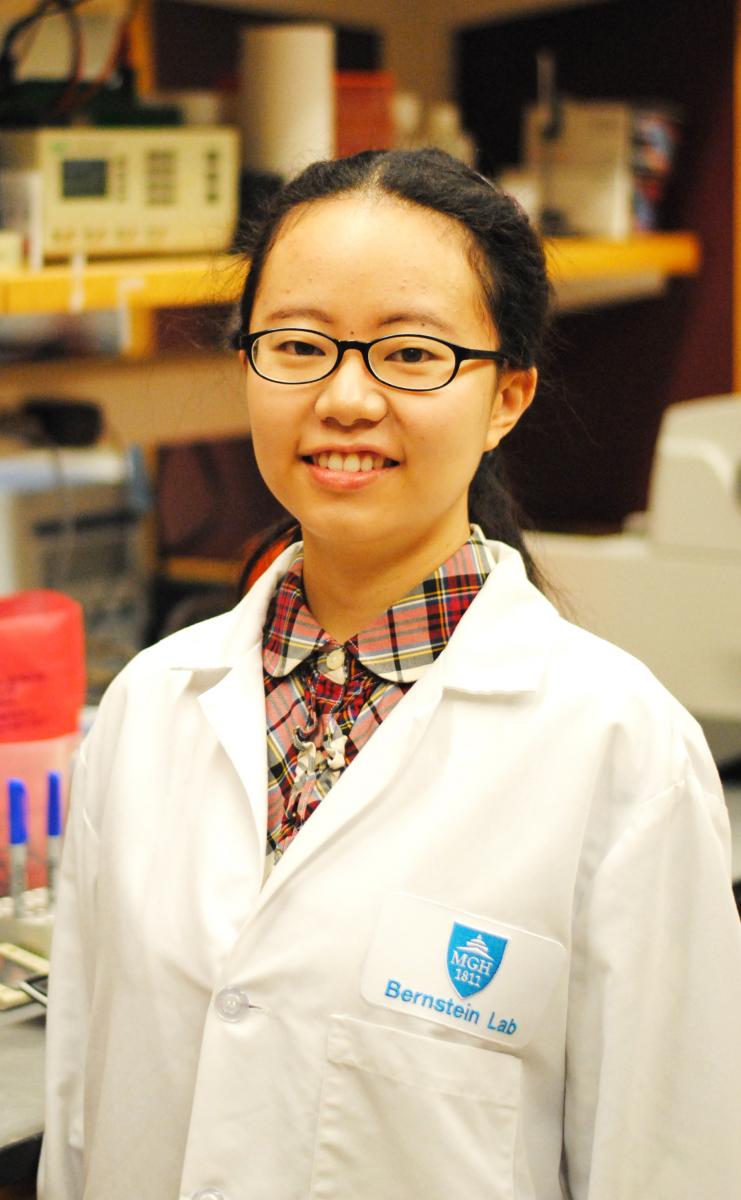 Jingyi Wu, PhD, with her sponsor Bradley Bernstein, MD, PhD, at Massachusetts General Hospital, Boston, is studying the epigenetic profile of glioma brain tumors at single cell resolution. Epigenetic alterations, which change gene expression without any changes to the underlying DNA sequence, can affect cancer driver genes in many tumor types, including gliomas. Unlike genetic mutations, epigenetic alterations are often reversible and are promising drug targets. Dr. Wu aims to determine whether there are various subpopulations of cells with distinct epigenetic features within a tumor, and whether the epigenetic differences endow these subpopulations with distinct properties, such as propensity for growth or drug resistance. These studies will lay the groundwork for precision treatment strategies targeting the fast-growing and drug-resistant cells within gliomas, and potentially other tumor types.
Jingyi Wu, PhD, with her sponsor Bradley Bernstein, MD, PhD, at Massachusetts General Hospital, Boston, is studying the epigenetic profile of glioma brain tumors at single cell resolution. Epigenetic alterations, which change gene expression without any changes to the underlying DNA sequence, can affect cancer driver genes in many tumor types, including gliomas. Unlike genetic mutations, epigenetic alterations are often reversible and are promising drug targets. Dr. Wu aims to determine whether there are various subpopulations of cells with distinct epigenetic features within a tumor, and whether the epigenetic differences endow these subpopulations with distinct properties, such as propensity for growth or drug resistance. These studies will lay the groundwork for precision treatment strategies targeting the fast-growing and drug-resistant cells within gliomas, and potentially other tumor types.
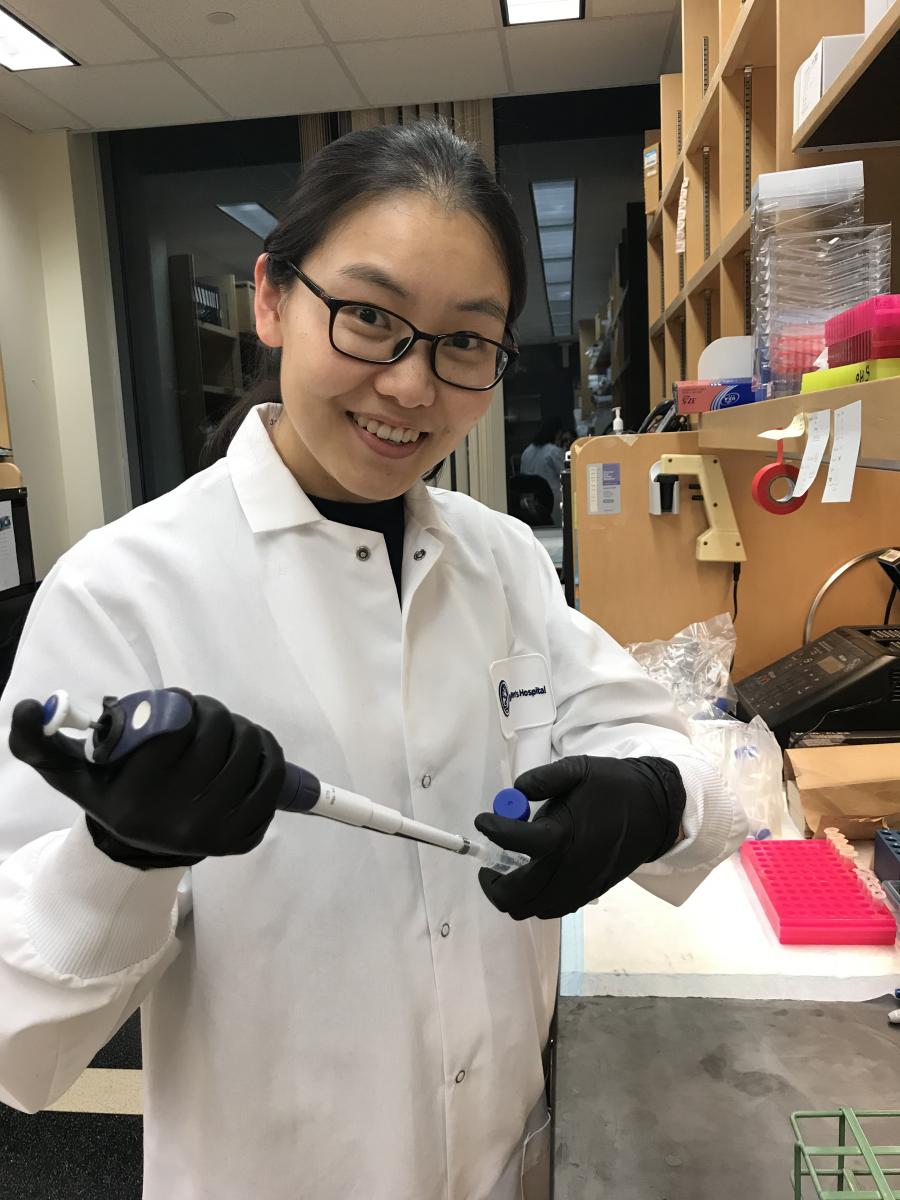 Ge Zheng, PhD [HHMI Fellow] with her sponsor Stuart Orkin, MD, at Boston Children’s Hospital, Boston, is taking an interdisciplinary approach to understand how transcription factors that regulate the transcription of DNA to RNA malfunction in human cancers. The B cell lymphoma/leukemia 11A (BCL11A) gene encodes a zinc-finger transcription factor, which plays a critical role in silencing fetal globin expression in the fetal-to-adult switch in red blood cells and is implicated in cancer. Dr. Zheng aims to develop novel approaches to interfere with BCL11A function, which will provide a general strategy to manipulate transcription factors as molecular targets for therapeutic benefit.
Ge Zheng, PhD [HHMI Fellow] with her sponsor Stuart Orkin, MD, at Boston Children’s Hospital, Boston, is taking an interdisciplinary approach to understand how transcription factors that regulate the transcription of DNA to RNA malfunction in human cancers. The B cell lymphoma/leukemia 11A (BCL11A) gene encodes a zinc-finger transcription factor, which plays a critical role in silencing fetal globin expression in the fetal-to-adult switch in red blood cells and is implicated in cancer. Dr. Zheng aims to develop novel approaches to interfere with BCL11A function, which will provide a general strategy to manipulate transcription factors as molecular targets for therapeutic benefit.







